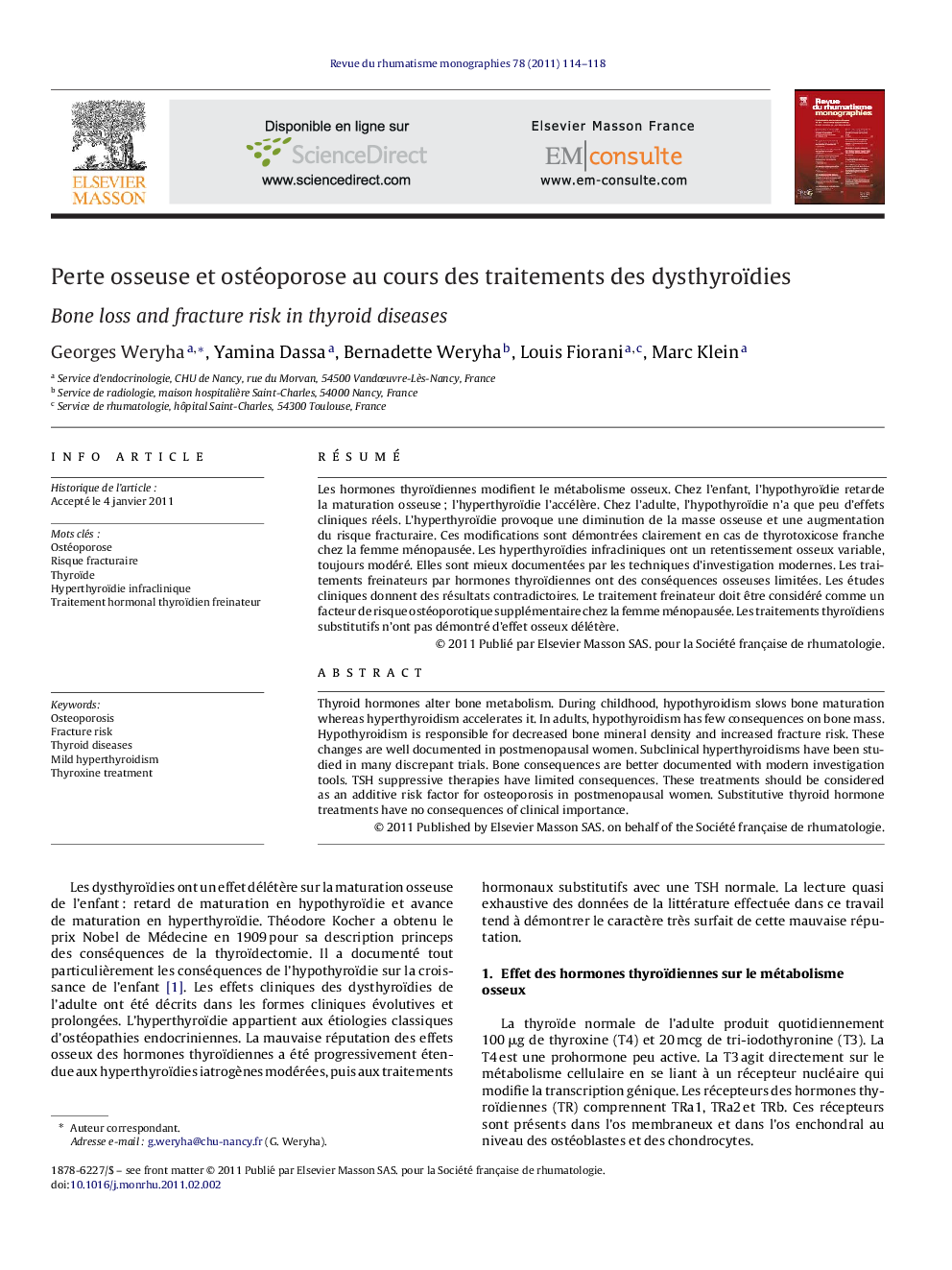| Article ID | Journal | Published Year | Pages | File Type |
|---|---|---|---|---|
| 3389996 | Revue du Rhumatisme Monographies | 2011 | 5 Pages |
Abstract
Thyroid hormones alter bone metabolism. During childhood, hypothyroidism slows bone maturation whereas hyperthyroidism accelerates it. In adults, hypothyroidism has few consequences on bone mass. Hypothyroidism is responsible for decreased bone mineral density and increased fracture risk. These changes are well documented in postmenopausal women. Subclinical hyperthyroidisms have been studied in many discrepant trials. Bone consequences are better documented with modern investigation tools. TSH suppressive therapies have limited consequences. These treatments should be considered as an additive risk factor for osteoporosis in postmenopausal women. Substitutive thyroid hormone treatments have no consequences of clinical importance.
Related Topics
Health Sciences
Medicine and Dentistry
Immunology, Allergology and Rheumatology
Authors
Georges Weryha, Yamina Dassa, Bernadette Weryha, Louis Fiorani, Marc Klein,
